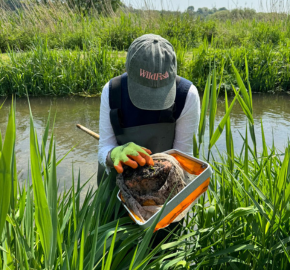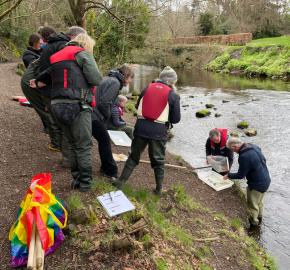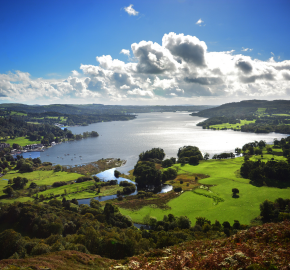Smart Science
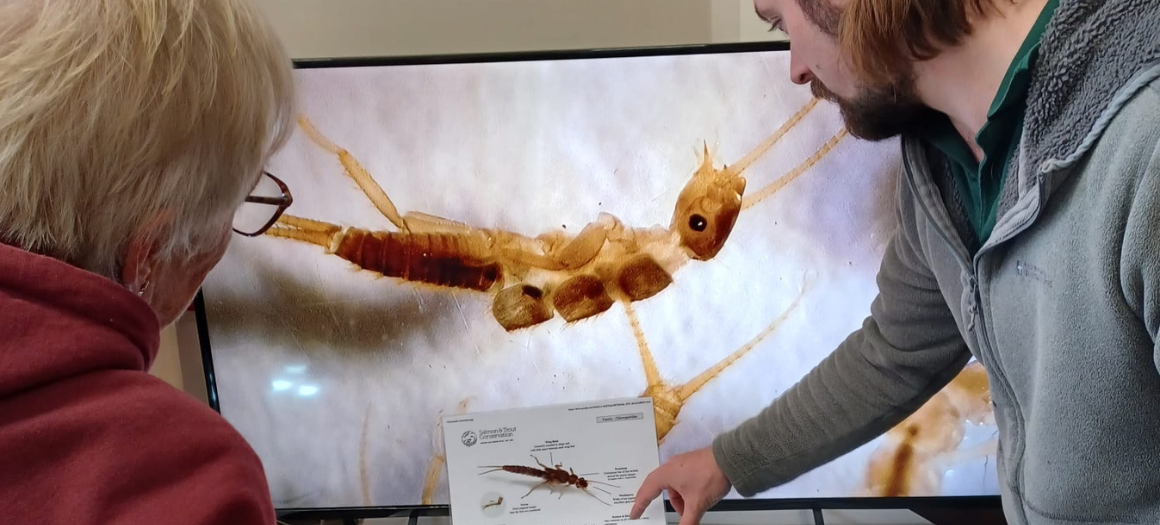
Species identification of invertebrates, to a near professional standard, taught to volunteers in just one day.
It can’t be done we hear you say, or can it….
We’re used to the disbelief when we describe our SmartRivers project to professional scientists. But, after experiencing a course and understanding the steps, it’s hard to argue. SmartRivers is smart science.
I’m interested, how does it work?
SmartRivers has two pathways: sample and send or sample and identify. As the names suggest, the groups have the option to send their samples to professional laboratories for analysis or identify them independently. Or a combination of the two – whatever works best for the hub.
The expected species list
We’re not teaching people to identify absolutely every aquatic invertebrate in existence. That would be completely unrealistic. Through the benchmarking process (an initial professional survey all new SmartRivers groups receive on their sites) we narrow down an ‘expected species list’ and this is what we teach our volunteers to identify.
It is our goal that groups become experts of their own rivers, not entomologists.
Unlike traditional identification, we use picture matching instead of keys. The high resolution digital images also contain tips with what volunteers should look for to confirm an ID. The expected species list links to these images which are stored online. This autumn we have also begun to introduce a printable version of the list. The list is updated every season with any new additions.
Every animal a group cannot ID, or they believe falls outside of the expected species list must be verified by us. The volunteers email a photo and we get professional confirmation.
Quality control
When we developed SmartRivers we wanted to ensure it was providing good quality data to help drive action on the rivers our volunteers care about. However, we knew for hubs choosing to participate in their own identification, we needed to tick one rather large box that very few citizen science schemes do, and that is quality control.
Those completing their own ID work are informed to keep all their original substrate and animals (separately!) for each sample. After they’ve completed their own analysis for that season, we select one sample at random and post it to one of our professional entomologists. The animals and substrate receive a full check and feedback is given on whether the volunteers passed the quality control and where they could improve their skills.
Practice makes perfect!
The more volunteers participate in ID, the more skills they have. We’re building expertise and connection so invertebrate species monitoring is more accessible.
Our new digital microscopes have advanced group learning and made identification more of a collaborative activity. Groups completing their own ID are supplied with two of these microscopes to use.
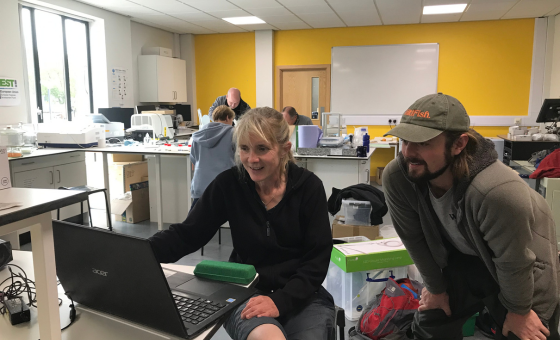
Sam in action with the Severn Rivers Trust Rea Brook team at Shrewsbury University.
Find out more
It’s our goal to have a SmartRivers hub on every river in the United Kingdom.
If you’re part of a local river group and would like to find out more about how SmartRivers can add value to your local river, please contact smartrivers@wildfish.org


